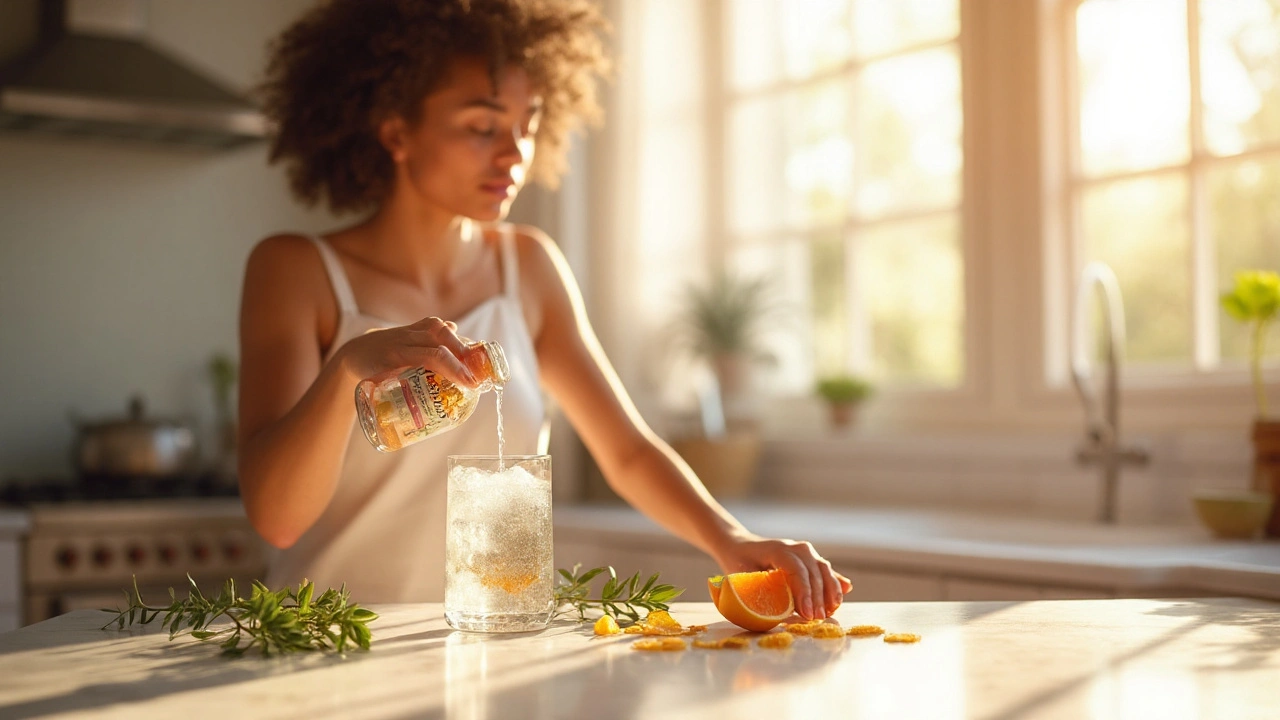Hydration Basics: Your Guide to Staying Properly Hydrated
Water is the fuel that keeps every part of your body moving. If you skip it, you’ll feel tired, get headaches, and your performance will drop. The good news is that staying hydrated is mostly about habit, not magic.
How Much Water Should You Drink?
Most experts say aim for about 8 cups (2 liters) a day, but that’s just a starting point. Your actual need depends on age, weight, activity level, and climate. A quick trick: divide your weight in pounds by 2 and that’s the number of ounces you should aim for. So a 150‑lb person needs about 75 oz, roughly 9‑10 cups.
When you exercise, add 1.5 cups for every 30 minutes of moderate activity. Hot weather or high altitudes boost sweat loss, so add another cup or two. If you’re pregnant or nursing, add 1‑2 cups daily.
Listen to your body. Thirst is a late sign, but if you notice dry mouth, dark urine, or fatigue, you’re already behind.
Smart Ways to Keep Your Fluid Levels Up
Drinking plain water all day works, but variety makes it easier. Start your morning with a glass of water plus a squeeze of lemon – it kick‑starts digestion and adds flavor.
Keep a reusable bottle at your desk or in your bag. Every time you finish one, refill it. Setting a phone reminder every hour can turn sipping into a habit.
Eat water‑rich foods. Cucumbers, watermelon, oranges, and strawberries are over 90% water. Adding a side salad or a fruit snack can add a couple of cups without any effort.
Swap sugary drinks for hydrating alternatives. Herbal teas, coconut water, or diluted fruit juice give taste without the spike in calories.
If you’re an athlete, consider a sports drink that contains electrolytes, especially for sessions longer than an hour. Sodium and potassium help your body retain the water you drink.
Watch your alcohol intake. Alcohol is a diuretic, so every drink means you need an extra glass of water to balance it out.
Pay attention to urine color. Light straw or pale yellow means you’re on track. Dark amber signals you need more fluids.
When you’re sick with fever, vomiting, or diarrhea, increase fluid intake dramatically. Oral rehydration solutions or broth are best because they add electrolytes.
Kids and older adults are more prone to dehydration, so keep water accessible and encourage regular sips.
Finally, don’t wait until you’re thirsty. Make sipping a continuous, low‑effort activity throughout the day. Your body will thank you with better focus, smoother digestion, and steadier energy.
Staying hydrated isn’t a chore; it’s a tiny habit that adds up to big health gains. Pick a tip, try it for a week, and notice the difference. Hydration is the easiest way to boost your wellbeing—so grab that bottle and start sipping.
Boost Your Wellness Routine with Cherry Laurel Water - The Trending Supplement
- Benjamin Aghaki-Allen
- Health & Wellness
- 8 comment
Discover why Cherry Laurel Water is revolutionizing wellness routines, its unique benefits, how it compares to other supplements, and practical tips for safe daily use.
VIEW MORECategories
Popular posts
-
Sinemet vs Other Parkinson’s Drugs: Detailed Comparison
Benjamin Aghaki-Allen -
Stability Testing Requirements: Temperature and Time Conditions for Pharmaceutical Products
Benjamin Aghaki-Allen -
How to Protect Your Privacy When Disposing of Medications
Benjamin Aghaki-Allen -
Bottled Viagra (Sildenafil) vs ED Alternatives: Full Comparison Guide
Benjamin Aghaki-Allen -
Foreign Manufacturing of Generics: How the FDA Oversees Quality and Safety
Benjamin Aghaki-Allen
Popular tags
- side effects
- medication safety
- online pharmacy
- generic drugs
- medication errors
- drug side effects
- dietary supplement
- gut health
- blood pressure medication
- alternatives
- medication adherence
- Hatch-Waxman Act
- drug interactions
- medication reconciliation
- weight loss
- dosage
- weight management
- quality of life
- cheap generic Zoloft
- affordable sertraline
